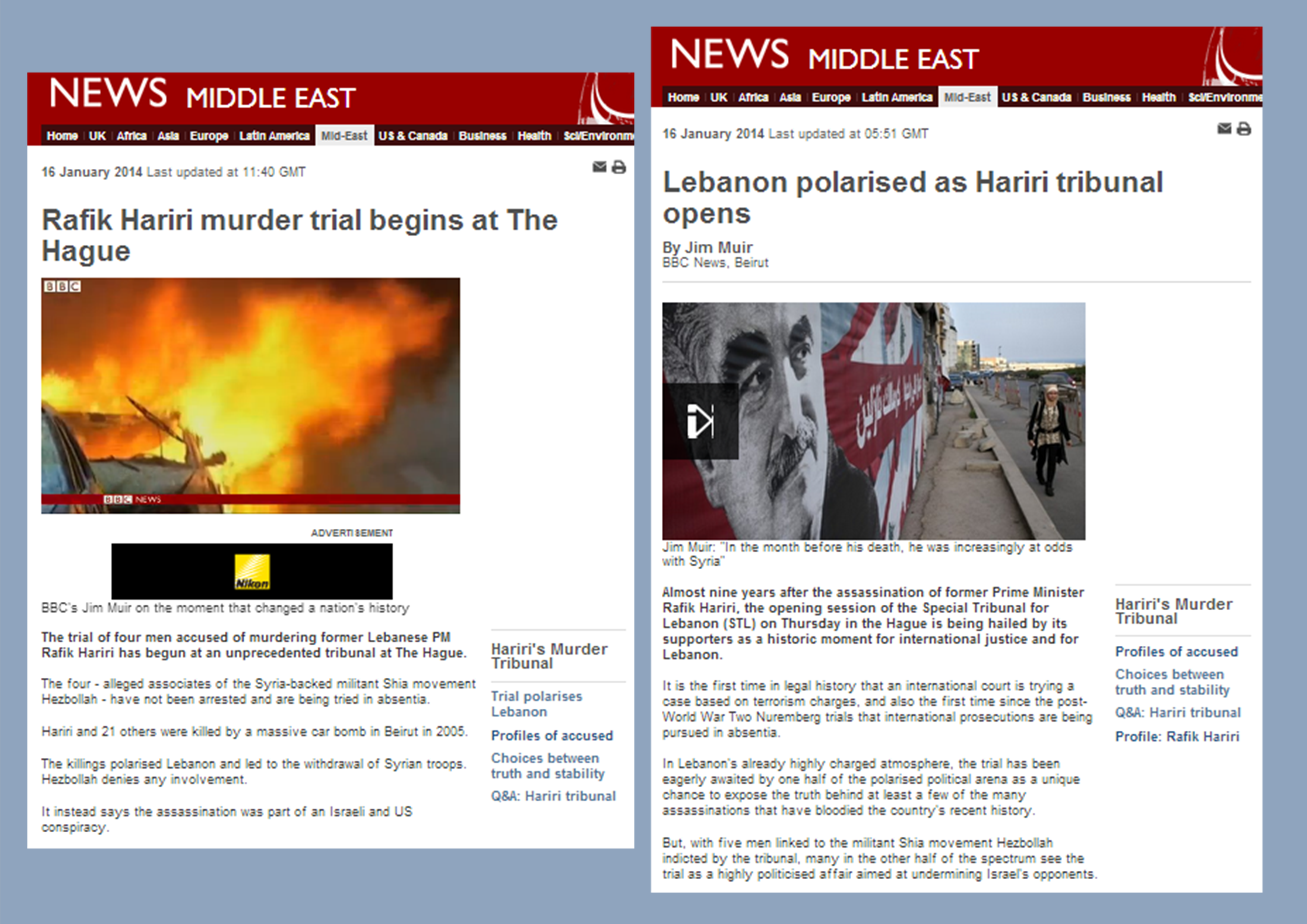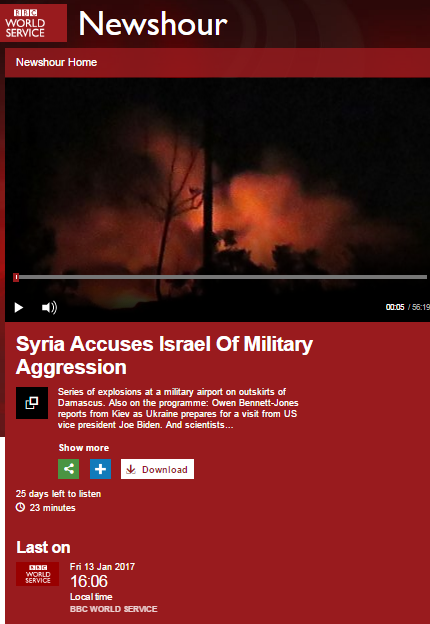There are currently two articles on the subject of the Special Tribunal for Lebanon, which opened proceedings last week, on the Middle East page of the BBC News website.
In the ‘Features & Analysis’ section appears an article by the BBC’s Beirut correspondent Jim Muir titled “Lebanon polarised as Hariri tribunal opens” which also includes a filmed report by Muir broadcast on BBC television news programmes. That filmed report is also included in an article titled “Rafik Hariri murder trial begins at The Hague” which appears in the news section of the website’s Middle East page.
In all three of those items, Hizballah propaganda is uncritically promoted in among the rest of the information provided.
In the filmed report Muir states:
“But, the militant Shiite movement [Hizballah] has dismissed the trial as part of a conspiracy by Israel to discredit its enemies.”
In the article appearing in the news section it is stated:
“Hariri and 21 others were killed by a massive car bomb in Beirut in 2005.
The killings polarised Lebanon and led to the withdrawal of Syrian troops. Hezbollah denies any involvement.
It instead says the assassination was part of an Israeli and US conspiracy.”
And:
“But Hezbollah leader Hassan Nasrullah says it was Israel that tracked Hariri’s movements by satellite, penetrating the phone system to falsify records and masterminding the assassination to discredit and undermine its enemies.”
In the ‘Features & Analysis’ article it is stated:
“But, with five men linked to the militant Shia movement Hezbollah indicted by the tribunal, many in the other half of the spectrum see the trial as a highly politicised affair aimed at undermining Israel’s opponents.”
And:
“The Hezbollah leader, Hassan Nasrallah, set out his movement’s narrative on the affair in August 2010.
Introducing video footage he said was intercepted from Israeli spy drones, he argued that Israel was behind the killing, tracking Rafik Hariri’s movements, and penetrating and manipulating Lebanese phone network records on which the bulk of the prosecution case is apparently based.
“The aim was to denigrate and demoralise the leaders and militants of the Resistance, and worse, to stir sectarian strife and even civil war between Sunnis and Shia in Lebanon,” he insisted.”
Both the above articles include links to an item titled “Q&A: Hariri Tribunal” in which it is stated:
“Hezbollah has repeatedly denied any involvement in the attack and said the assassination was part of an Israeli and US conspiracy.”
And:
“Hezbollah, for its part, has dismissed the tribunal as an “Israeli instrument”, and produced what it regards as evidence that Israel was involved in the bombing.”
The Special Tribunal for Lebanon was of course established by the UN Security Council.
This of course is by no means the first time that the baseless propaganda of the Iranian funded and controlled international terrorist and criminal organization Hizballah has been unquestioningly repeated and promoted by the BBC. As we have noted here in the past:
“The BBC clearly has a problem knowing how to relate to the streams of all too predictable propaganda regularly produced by regimes and terrorist organisations in the Middle East. Its current practice of uncritical repetition and amplification of baseless rumour, conspiracy theories and propaganda is clearly incompatible with its obligation to “build a global understanding of international issues” and its self-declared aspiration to “remain the standard-setter for international journalism”.
The BBC’s remit is to help audiences look beyond the propaganda and rhetoric they can just as easily view on websites and television stations run by Hizballah or the Iranian and Syrian regimes rather than giving it inappropriate credence through uncritical repetition and amplification on its own website and television news.”
Related Articles:





